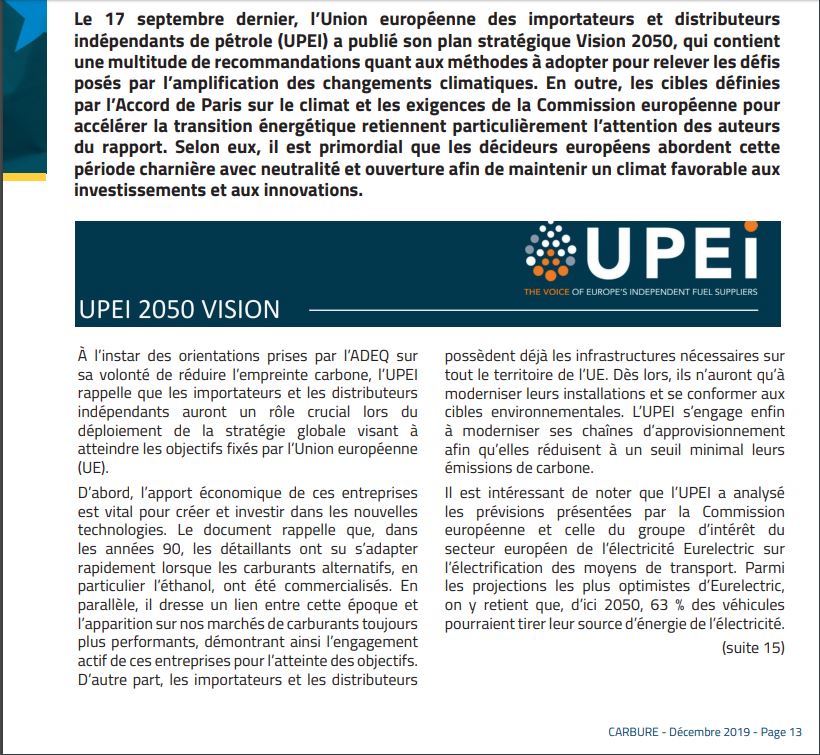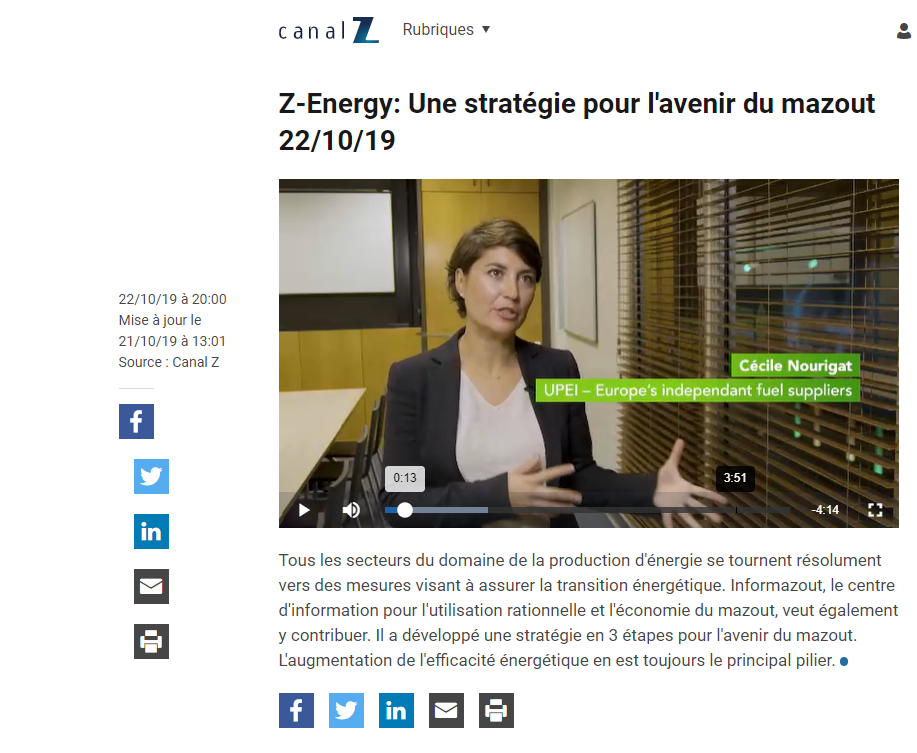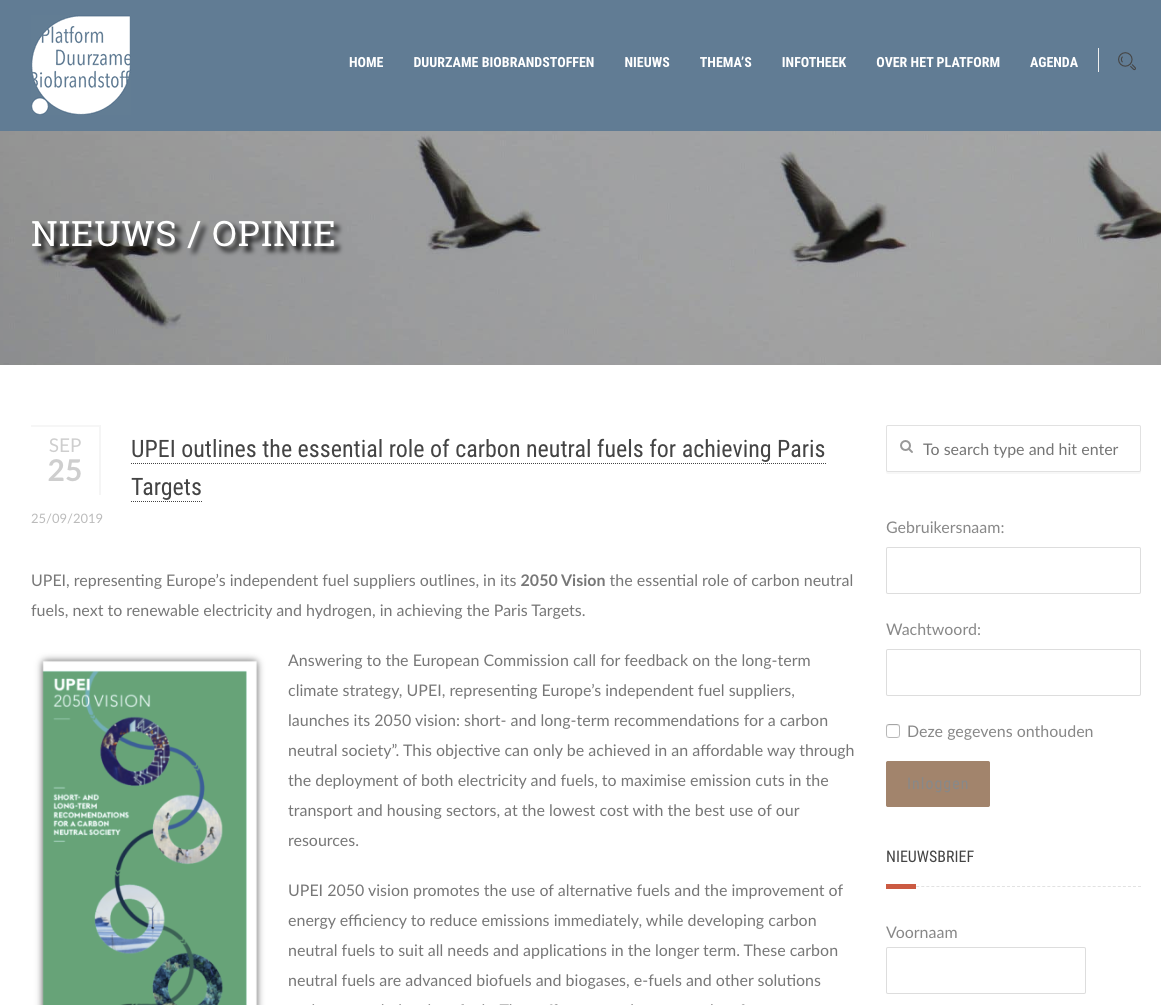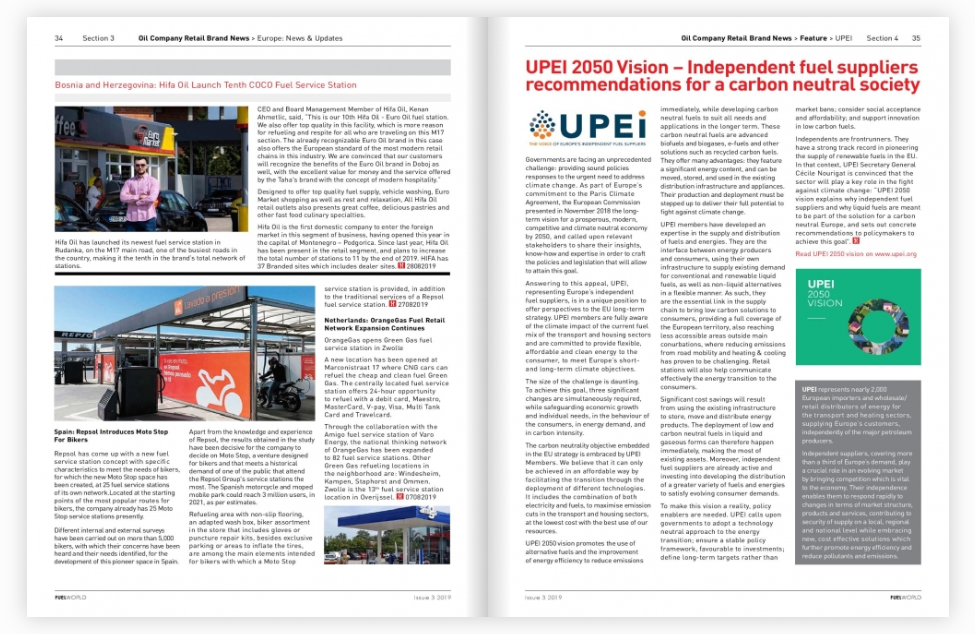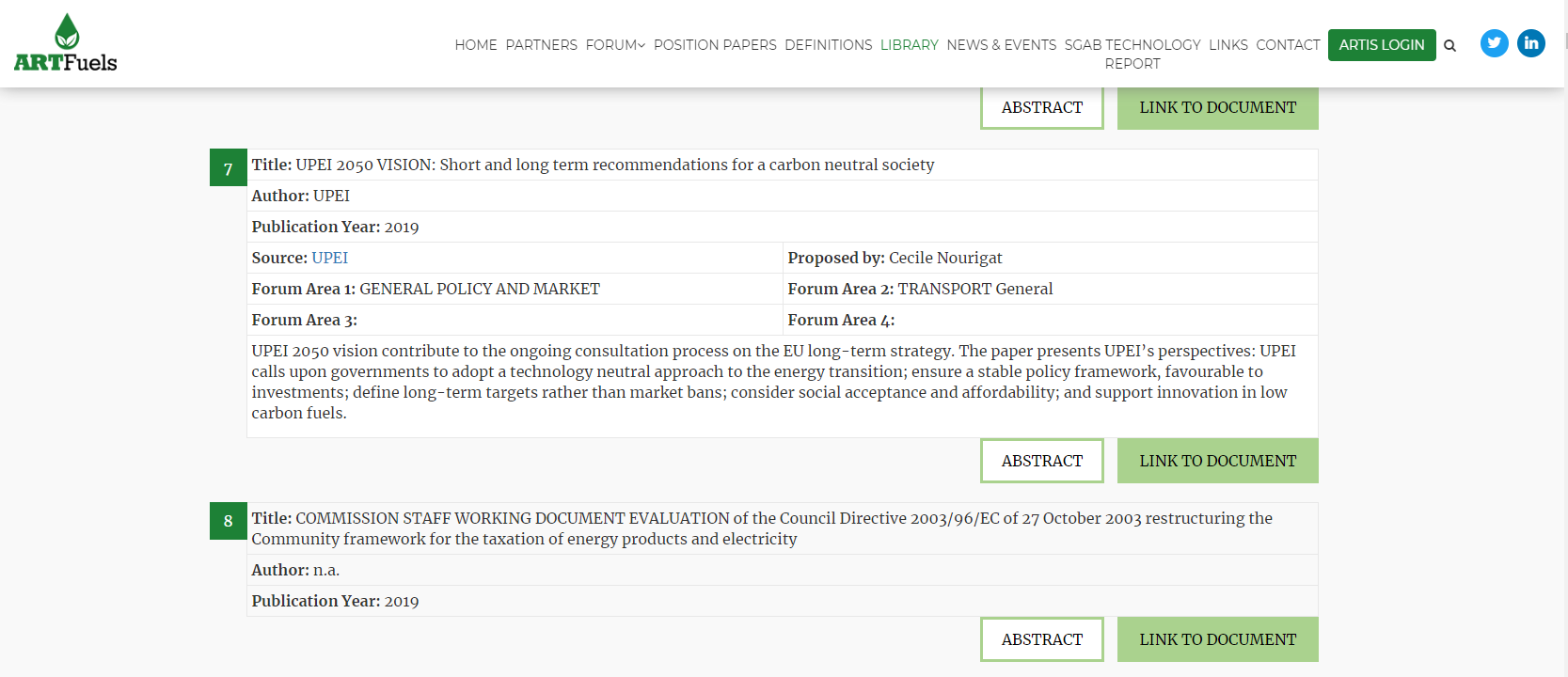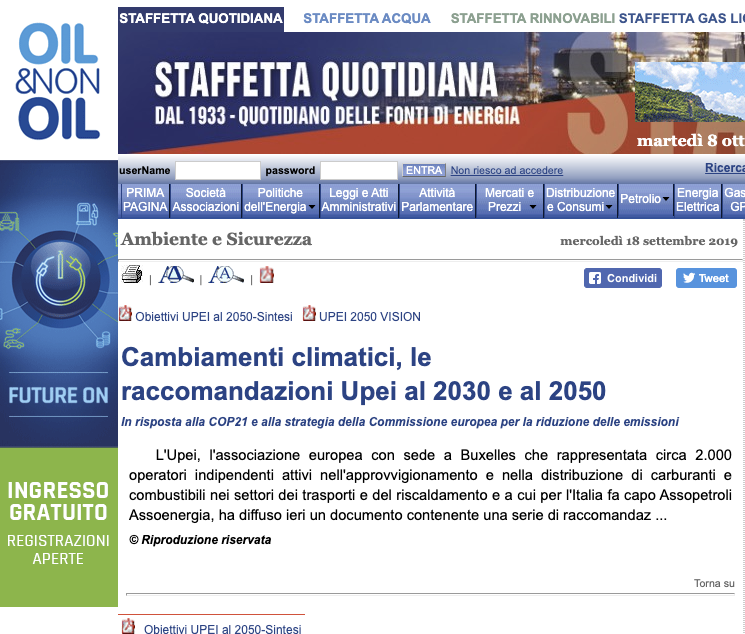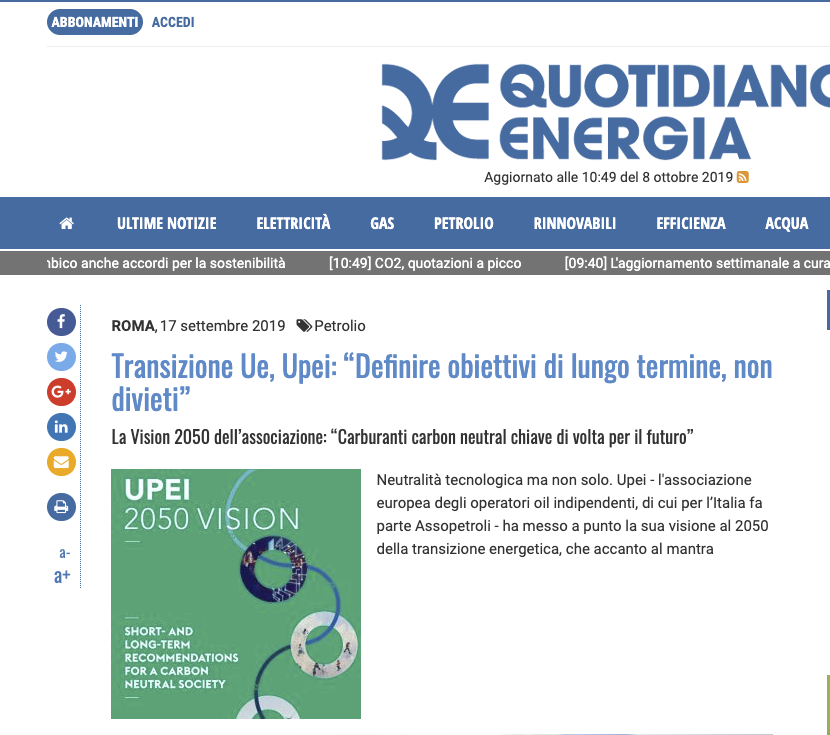A global and European commitment to fight climate change
The European institutions are facing an unprecedented challenge: providing sound policies responding to the urgent need to address climate change.
By signing the Paris Agreement under the United Nations Framework Convention on Climate Change (UNFCCC), the European Union assumed the common commitment of “holding the increase in the global average temperature to well below 2 °C above preindustrial levels and pursuing efforts to limit the temperature increase to 1.5 °C above pre-industrial levels”.
As part of this commitment the European Commission presented on 28 November 2018 the long-term vision for a prosperous, modern, competitive and climate neutral economy by 2050. At the same time, EU institutions are calling on all relevant stakeholders to share their insights, know-how and expertise in order to craft the policies and legislation that will help Europe attain the common energy and climate objectives assumed by endorsing the Paris Agreement.
To achieve this goal, three significant changes are simultaneously required, while safeguarding economic growth and individual needs:
- Changes in consumer behaviour;
- Reduction in energy demand thanks to energy savings and efficiency improvements;
- Urgent drop of carbon emissions across all sectors, while being sustainable in the long term.
2016
The Paris Agreement, a global action plan to put the world on track to avoid dangerous climate change
2018
A Clean Planet for All, the long-term vision for a prosperous, modern, competitive and climate-neutral economy published by the European Commission
2019
UPEI perspectives on the EU long-term strategy
2020
EU to adopt and submit an ambitious strategy to the UNFCCC as requested under the Paris Agreement
Our vision
UPEI vision promotes the use of existing technologies and the improvement of energy efficiency to reduce emissions immediately, while developing carbon neutral fuels to suit all needs and applications by 2050.
2030
In the short term
The following solutions can immediately bring benefits
- Focus on energy efficiency first
Alongside technological and design developments to reduce fuel consumption of new appliances, more efficient supply systems will also make energy use more sustainable. - Increased use of sustainable biofuels blended into conventional fuels
Sustainable biofuels are mature technologies and can be further deployed in an effective manner by being blended into conventional fuels, even in applications where they are not yet commonly used (aviation, non-road mobile machineries, maritime transport, heating & cooling) - Increased deployment of other alternative fuels
All alternative fuels can bring a significant contribution to reaching climate objectives, in addition to air quality benefits. They must be largely deployed, based on their suitability for each application, and able to compete fairly against each other.
2050
In the long term
Carbon neutral fuels should be fully deployed to reach net zero carbon at the horizon 2050, alongside green electricity and hydrogen
These carbon neutral fuels are advanced renewable fuels and can be produced in a number of ways:
Advanced biofuels and biogases
Produced from biogenic feedstocks
+ around 100% GHG savings compared with fossil fuel equivalents, and even over thanks to avoided emissions
+ production costs closing the gap with fossil fuels for certain pathways
+ generate wealth within the growing European bioeconomy
E-fuels or Power-to-X
Advanced renewable fuels produced from renewable electricity via electrolysis
+ carbon neutral thanks to renewable electricity
+ complementary way to store electricity, in liquid or gaseous form
+ can be distributed and used in the existing infrastructure and appliances
Recycled carbon fuels
Fuels produced from industrial waste gases or based on non-recyclable plastics
Our contribution
UPEI, representing Europe’s independent fuel suppliers, is in a unique position to offer perspectives to the EU long-term strategy.
UPEI members are fully aware of the climate impact of the current fuel mix for fuels and are committed to provide flexible, affordable and clean energy to the consumer, to meet Europe’s short- and long-term climate objectives.
UPEI members can channel the transition, as critical elements of the connecting tissue that keeps the energy and mobility systems in operation. In a context where renewable energy production will become more diversified and decentralised, independent fuel suppliers have a major role to play in bringing these energies to the end users.
UPEI members are already contributing. To learn more about concrete low carbon solutions from UPEI members, check our case studies here.
Furthermore, they will contribute by:
- Repurposing and investing in distribution infrastructure
UPEI members have an extensive infrastructure for storing and moving products across Europe and own more than a fifth of the total retail network in Europe. They are ready to re-purpose this extensive infrastructure to meet evolving consumer demands. - Making the most of their expertise
UPEI members have developed an expertise in the supply and distribution of fuels and energies. Independents are frontrunners. They have a strong track record in pioneering the supply of renewable fuels in the EU. - Making the link with consumers
UPEI members are the closest to consumers, as retailers are the last elements of a long supply chain. Retail stations will therefore help communicate effectively the energy transition to the consumers. - Leaving no one behind
Independent fuel suppliers can bring low carbon solutions to consumers outside main conurbations, in mountainous and rural areas, and generally push prices down by bringing competition in the market, ensuring affordability.
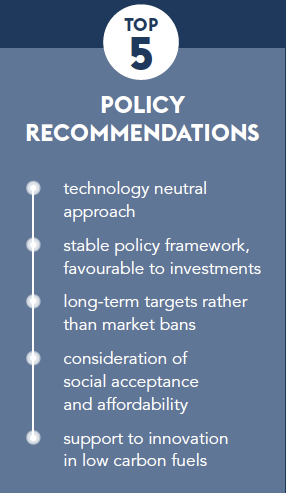
The challenge
The EU long-term strategy stresses that the decarbonisation of key sectors such as mobility and heating & cooling cannot be based on silver bullets
There is no single solution
The market introduction rate of battery-electric vehicles is not fast enough to provide the necessary carbon emission reduction, while the electrification of heating is slow. We also need to clean up the existing vehicle stock and appliances;
Each challenge requires a dedicated response
including carbon neutral solutions for segments or applications which are difficult, or not effective to electrify;
Renewable electricity production is growing
We need solutions to balance fluctuating generation and store energy for the long term.
This is not a choice between electricity and fuels, both will be needed
It is a move from high carbon to low carbon, and from fossil to renewable that is required (for electricity, liquid and gaseous fuels). Not only both will be needed, but research also shows that a combination of different technologies can maximise emission cuts at the lower cost and with the best use of our resources.

The benefits
Carbon neutral fuels offer many advantages when considering future energy needs.
Significant energy content per mass
Especially for applications requiring high amounts for energy such as planes and ocean-going vessels.
Storage pre-use
They can be stored in liquid of gaseous forms, in the long term, without energy losses.
Portability
Both in liquid and gaseous form they can be transported virtually anywhere, from the place of production to the place of consumption, thanks to the existing supply infrastructure.
Optimisation of the existing distribution infrastructure
Thanks to their properties, they can be used in the existing supply and distribution infrastructure, making the most of existing assets in Europe.
Energy security and reliability
Their storability and portability allow to stock necessary volumes to use them in case of black out or any other supply issue with other energy carriers.

Documents
Please find here all the documents related to our vision.
![]() UPEI 2050 VISION - Vision paper
UPEI 2050 VISION - Vision paper
![]() UPEI 2050 VISION - Press release
UPEI 2050 VISION - Press release
![]() UPEI 2050 VISION - Brochure_ENG
UPEI 2050 VISION - Brochure_ENG
Translated brochures:
![]() UPEI 2050 VISION - Brochure_CZ
UPEI 2050 VISION - Brochure_CZ
![]() UPEI 2050 VISION - Brochure_ES
UPEI 2050 VISION - Brochure_ES
![]() UPEI 2050 VISION - Brochure_ITA
UPEI 2050 VISION - Brochure_ITA
![]() UPEI 2050 VISION - Brochure_LV
UPEI 2050 VISION - Brochure_LV
![]() UPEI 2050 VISION - Brochure_NL
UPEI 2050 VISION - Brochure_NL








